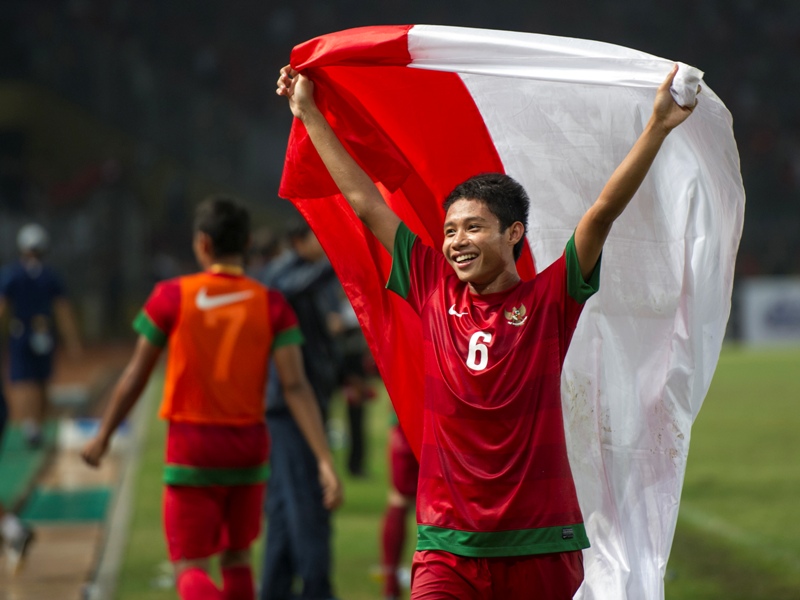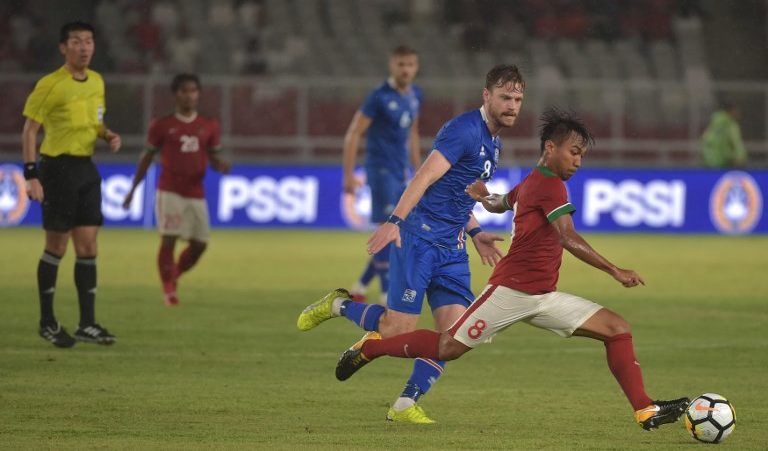While it’s a point of pride among a few historically-minded local football fans, most people in our soccer-obsessed nation are unaware that the first Asians to ever qualify for the FIFA World Cup came from Indonesia — though it wasn’t called that at the time.
In 1938, the Dutch East Indies, the colony that comprised the collection of islands now known as Indonesia, qualified for the quadrennial World Cup competition in France. The Dutch wanted to pick their own people for the tournament, but they couldn’t ignore the fact that some native players were just too good to be left at home.
The competition then was a straight knockout, and the Dutch East Indies were unfortunate to meet superpower Hungary in the first round. They lost 6-0 to the Europeans, but history was made.
Eighty years later, Indonesia has become a sovereign nation with the fourth largest population in the world, much of which is absolutely obsessed with soccer. So why have have we failed to qualify for the biggest soccer competition on the planet up to this point?
Blame is often placed on mismanagement and corruption within the Indonesian Football Association (PSSI). Others say that, despite Indonesia having a population of around 260 million, soccer at the grassroots level just isn’t being developed as it should be, leading to a shortage of players with the abilities to perform on the big stage against Europeans and South Americans.
In fact, in its entire history, Indonesia’s senior men’s soccer team has earned little to boast about in terms of silverware. The team has never even won the AFF Championship — contested by ASEAN nations — despite being the biggest country in the region by far. The AFC Asian Cup is even more of a pipe dream, with Indonesia never going beyond round one of the competition, even on those rare occasions that the team manages to qualify for it (the last one being in 2007 as a co-host).
Unfortunately, it’s almost pointless to discuss whether or not we have the players to qualify for the next two, three, or even more World Cups — we simply don’t. Sure, Indonesia has had some impressive junior teams, like the U-19 team that won the 2013 AFF Youth Championship. But, as impressive as their attractive passing-based game was, the success has never been repeated among the senior team, which still lacks any sort of footballing identity.

Just how hopeless is the senior team? Well, at the time of writing, Indonesia is ranked 164th in the world by FIFA. As if that’s not embarrassing enough, the ranking puts Indonesia below the likes of war-torn Palestine (99th), neighbors Vietnam (102nd), Philippines (115th), Thailand (122nd), and even tiny Maldives (150th).
Evan Dimas, captain of the aforementioned U-19 team, is perhaps the most intelligent and promising player Indonesia has produced in recent years. But he has so far failed to live up to his potential as a senior — unable to develop his game largely due to the team’s lack of cohesive structure. His short-lived and unsuccessful stint in Spain further highlights the quality gap between young players from established soccer nations and Indonesia — even its golden boy.
Seventeen-year-old Egy Maulana Vikri has arguably surpassed Evan Dimas in terms of buzz. The young forward was named in The Guardian’s list of “60 of the best young talents in world football” in 2017 on the back of his impressive exploits in the AFF U-19 Youth Championship, in which he finished as top scorer with eight goals. He has since earned a move to Poland, where he plays in the top division with Lechia Gdansk, and earned a call up to the senior team.
Unfortunately, Egy has proved to be the rarest of diamond in the rough world of grassroots soccer in Indonesia, which has produced few young players who come even close to his quality. And, as we saw with Lionel Messi and Argentina in this World Cup, one man does not make a team.
Mainstays in the senior team, such as Andik Vermansyah, Boaz Solossa, and Fachrudin Aryanto have all consistently proved that they are unable to raise their game to bring glory to Indonesian soccer. The coach, Spaniard Luis Milla, who played for both Barcelona and Real Madrid during his career, has failed to imbue any aspect of the Spanish game onto the Indonesian team
All things considered, it seems Indonesia’s most likely path to the World Cup will be paved with action off the pitch.
Qualifying as hosts
2022 is perhaps the closest Indonesia would have come to hosting, and, by default, qualifying, for the World Cup. In 2009, the PSSI put forward a bid to host either the 2018 or 2022 World Cup, later opting to place its focus on the latter. The bid ultimately failed, as FIFA said the Indonesian government would not provide any guarantees of their commitment to host the global event.
The hosting duties for 2018 eventually went to Russia (and what an enjoyable World Cup it has been so far) and, suspiciously, the tiny but oil rich Middle Eastern nation Qatar won the rights to the 2022 competition. Canada, the US, and Mexico recently won their bid to co-host the 2026 World Cup, which will be the first time the competition features 48 teams, up from the current 32. With the new format, Asian teams will have eight slots in the competition (up from four or five in the 32-team format), but, even so, we can’t realistically believe that there still won’t be at least eight Asian teams better than Indonesia by then.

2030 is still up for grabs, though Asian nations are excluded from bidding to allow nations from other continents to host the World Cup after Qatar 2022. Therefore, 2034 is currently Indonesia’s best chance at hosting and qualifying for the World Cup.
In fact, Indonesia is proposing a joint bid to host the 25th World Cup along with its Southeast Asian neighbors. Indonesia would lead the bid while Thailand would almost certainly co-host, but the proposal could also include Malaysia, Singapore, and Vietnam.
With the current 32-team format, four or five co-hosts from Southeast Asia — none of whom has qualified for the World Cup by merit — and taking up all of Asia’s slots would be a huge consideration against the bid by the FIFA council. But with a 48-team format and eight spots for Asian teams in 2034, the prospect would certainly be less controversial.
That said, China has expressed interest in hosting the 2034 World Cup, possibly with Japan and the two Koreas in tow. The way China has emerged as a global juggernaut, it wouldn’t be surprising if they can secure the rights to the 2034 World Cup. Should that happen, Indonesia would have to wait for two more World Cups before it can propose another bid.
Indonesia and pals have eight years to work on the bid, with hosting rights for 2034 set to be decided in 2026. But who knows, maybe between now and then the next Lionel Messi or Cristiano Ronaldo will emerge from Indonesia and we’ll be in the World Cup sooner than expected.
https://www.facebook.com/Coconuts/posts/1832504090146885





fritztastic says
Not that they would have qualified anyway, but Indonesia was prohibited from playing in this year’s World Cup due to sanctions imposed by FIFA, a penalty handled down because of corruption in the local football leagues. Which, in a left-handed way, is beautifully funny, since FIFA is the most corrupt global sporting organization.